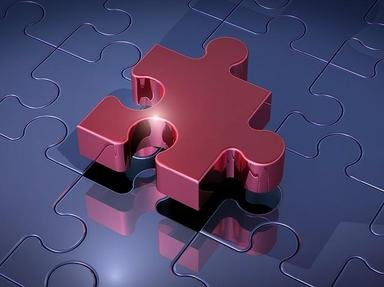Quiz Answer Key and Fun Facts
1. Logic 1: Has six letters
2. Logic 2: Contains more than one vowel (A,E,I,O or U only in this quiz)
3. Logic 3: Has one more letter than Logic 6
4. Logic 4: Contains one fewer vowel than Logic 9
5. Logic 5: Has more letters than Logic 8 but fewer than Logic 7
6. Logic 6: Ends in a vowel
7. Logic 7: Its final letter comes after Logic 8's alphabetically
8. Logic 8: Its final letter comes after Logic 1's alphabetically
9. Logic 9: Contains the same number of letters as Logic 5 and doesn't end in a vowel
10. Logic 10: Shares the same final letter as Logic 7
Source: Author
Fifiona81
This quiz was reviewed by FunTrivia editor
spanishliz before going online.
Any errors found in FunTrivia content are routinely corrected through our feedback system.

